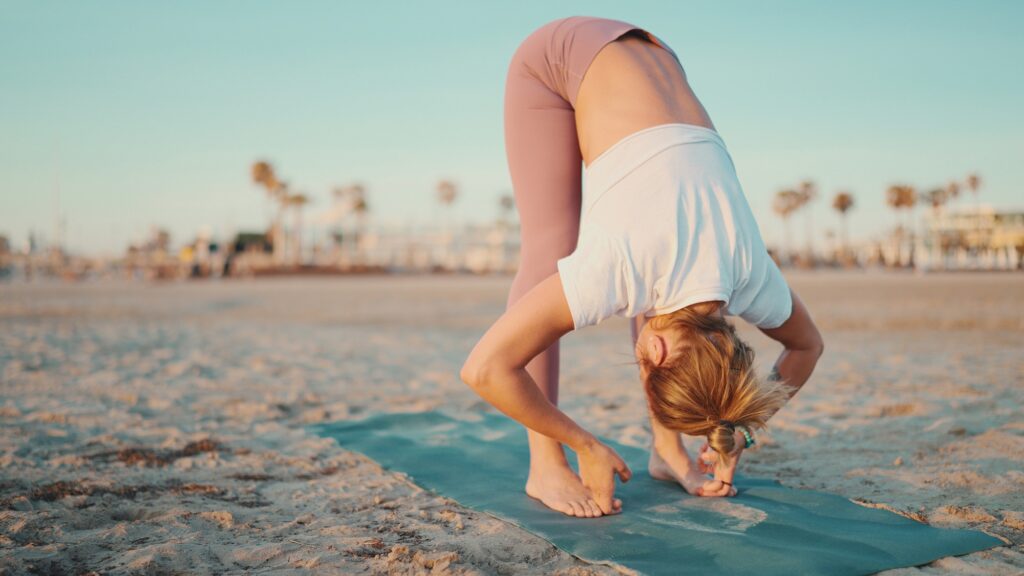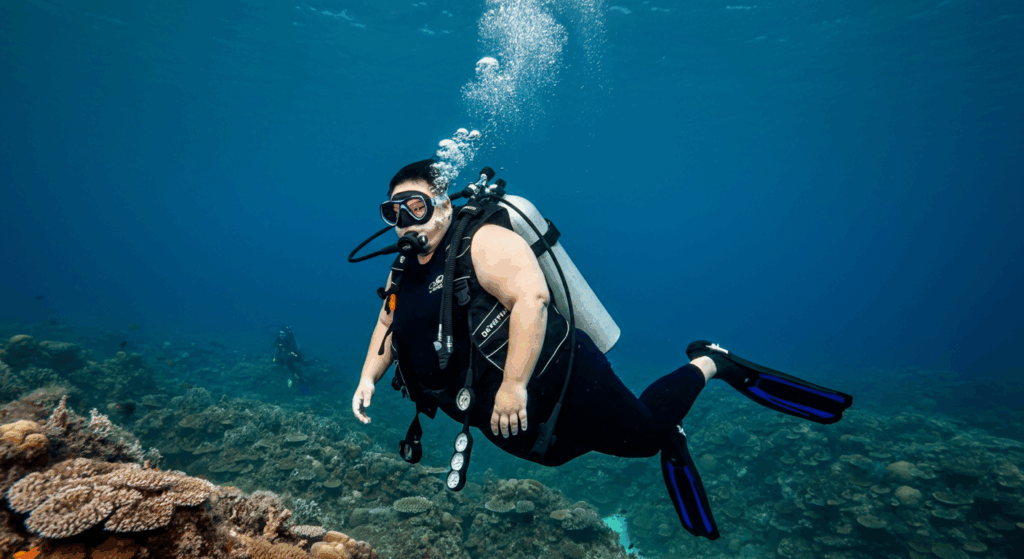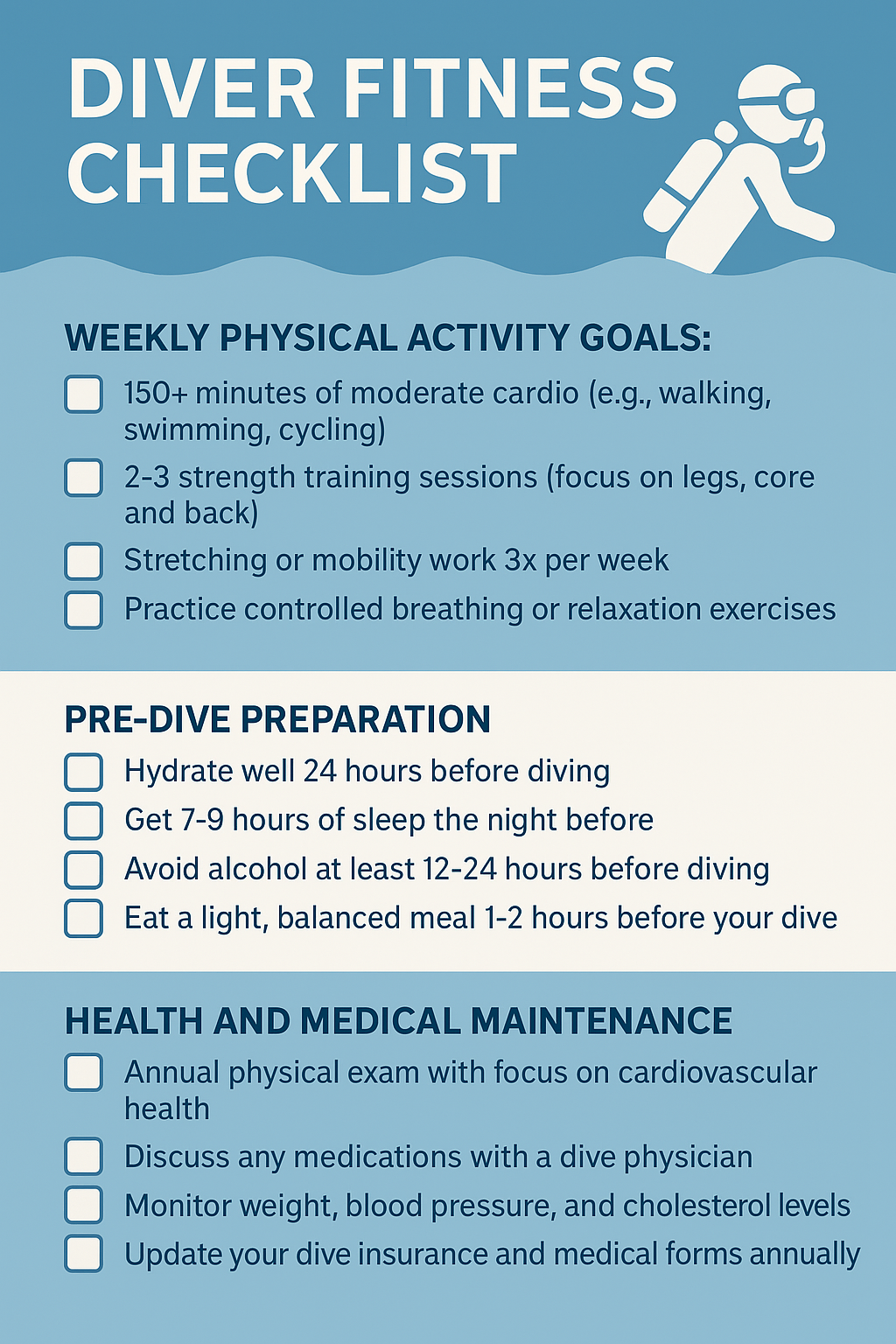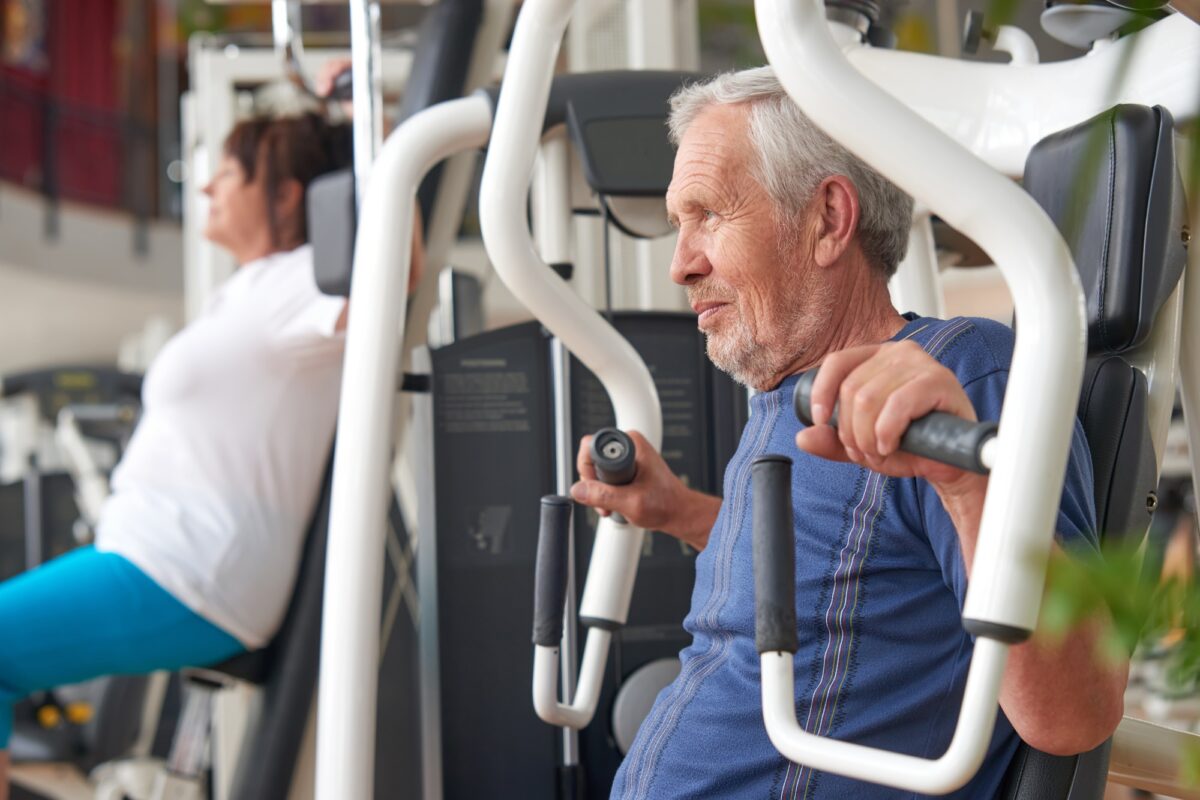A recent dive with our Sand Dollar team and guests reminded us once again why good physical fitness for divers matters. The dive trip took an unexpected turn when our captain heard a cry for help from another boat. As we neared them we discovered an unresponsive diver from their group that they couldn’t lift onboard due to her size. They also noted that this dive boat had no onboard oxygen to give her. Our crew quickly brought her aboard to begin care. Remarkably, that day three of our guest divers were medical doctors! They immediately began CPR as our dive staff readied the oxygen kit for her. She was immediately rushed back to our dive shop to a waiting ambulance.
This incident powerfully illustrates a critical facet of diving and health: physical fitness for divers. While the specifics of this emergency are unknown, conditions like obesity and poor physical conditioning are known to increase the risk of decompression sickness. To continue exploring the underwater world safely and enjoy all the benefits diving offers, maintaining good physical health is not just recommended – it’s essential.
Physical Fitness for Divers
Diving demands cardiovascular endurance, strength, and flexibility. Tasks such as carrying gear, navigating currents, and managing buoyancy require a well-conditioned body. Regular exercise routines, including aerobic activities and strength training, can enhance your diving performance and reduce fatigue. While this is true, it is also good to note that strength decreases as we age and dive operators will make accommodations for this by assisting you with your gear, helping you in a out of the water, etc. However, a healthy heart and good aerobic conditioning are still important.
Best Ways to Stay Fit for Scuba Divers
You don’t need to be an elite athlete, but being in good shape helps you dive more comfortably and safely. Here are practical ways divers can stay fit:

- Cardiovascular Training
Aim for at least 150 minutes of moderate aerobic activity per week (walking, cycling, swimming). This improves stamina, lowers your heart rate at depth, and helps with air consumption. - Strength Training
Two to three sessions per week focusing on legs, back, and core. Exercises like squats, lunges, planks, and rows support tank carrying, ladder climbing, and trim control. - Flexibility and Mobility
Stretch regularly—especially hamstrings, shoulders, and hips—to avoid injuries and make gearing up easier. Yoga or dynamic stretching can also improve coordination underwater and decrease the chance of leg cramps while diving. - Swimming and Finning Practice
Swimming builds overall endurance and comfort in the water. Practicing different fin kicks (frog, flutter, dolphin) helps improve efficiency and reduce leg fatigue on longer dives. - Breathing Exercises
Controlled breathing enhances your ability to relax and improves buoyancy. Techniques from freediving and yoga (such as diaphragmatic breathing) can also lower your air consumption rate.
The Link Between Physical Fitness and Dive Safety
Fitness isn’t just about performance—it’s a matter of life and safety. According to Divers Alert Network (DAN), 20–30% of scuba fatalities are caused by cardiovascular events, often triggered by exertion underwater. Most of these occur in divers over the age of 40 with preexisting conditions like high blood pressure, obesity, or heart disease. That’s why DAN and other experts strongly recommend annual physicals for divers, especially for those continuing the sport later in life.

Diving is not just a sport for the young. The average age of scuba divers globally tends to fall in the range of 30 to 50 years old, with a growing percentage over 50. Older adults (50+) make up a growing demographic, especially in travel diving communities. This trend underscores the importance of health awareness and physical fitness for divers who want to continue the sport well into midlife and beyond. The aging diver population is also why medical screening and physical readiness have become increasingly emphasized in dive training and safety guidelines.
Health Habits to Avoid on a Dive Trip
Even fit divers can compromise their safety with a few common but avoidable habits. Stay alert to these risks:
- Skipping Hydration
Dehydration increases your risk of decompression sickness (DCS). Drink water before and after every dive. - Drinking Alcohol Before Diving
Alcohol affects judgment, dehydrates the body, and can impair your ability to manage problems underwater. Avoid it entirely before diving and limit intake after dives. Any reputable dive company will not permit you to dive if you’ve had any alcohol to drink before diving. - Diving Tired
Fatigue can reduce your situational awareness and response time. Prioritize rest between dive days and don’t overpack your schedule. - Overeating or Diving on a Heavy Meal
A full stomach can interfere with buoyancy control and increase discomfort and lead to nausea. Stick to light, balanced meals before diving. - Ignoring Physical Ailments
Don’t push through chest pain, dizziness, or unusual fatigue. These could be early signs of a serious condition and should be addressed immediately. Too many divers have ruptured eardrums, had a severe face squeeze from their mask, or started having a heart attack or arrythmia while underwater. - Strenuous Exercise Too Soon After Diving
Heavy workouts after diving can increase nitrogen bubble formation in your body, elevating your risk of DCS. Allow sufficient recovery time (usually 4-6 hours) before engaging in intense physical activity post-dive.
Mental Health and Diving
Diving contributes positively to mental well-being. The focus required underwater promotes mindfulness, while the marine environment can alleviate stress and anxiety. It can help you disconnect from the noise and just enjoy the beauty of the ocean. Scuba diving helps one to focus as you navigate underwater, maintain your buoyancy, and keep track of your dive time and air supply. A great way just to enjoy the moment instead of focusing on work or other stressful situations.
Good Physical Fitness = Many Years of Diving
To ensure longevity in diving:
- Train consistently to maintain strength, endurance, and flexibility.
- Eat well, hydrate, and rest.
- Avoid health risks that compromise your dive safety.
- Get a yearly medical check-up, especially if over 40.
Dive Insurance
Dive accidents can happen to anyone—even those who are physically fit. All divers should be insured just in case of that unexpected accident. Treatment for DCS or other dive injuries can add up quickly. Dive insurance is not expensive and can come in quite handy when needed. We recommend DAN membership and insurance to completely cover yourself on a dive trip.
Dive Safely
Diving and health go hand in hand. Whether you’re exploring reefs or logging your 500th dive, your body and mind are your most important equipment. Take care of them—and keep diving for years to come.
Ensure your safety while diving. Book your next dive vacation with us here at Sand Dollar Sports in Cozumel, a PADI 5 Star Dive Center. We’ll do all we can to ensure safe and enjoyable dives.



